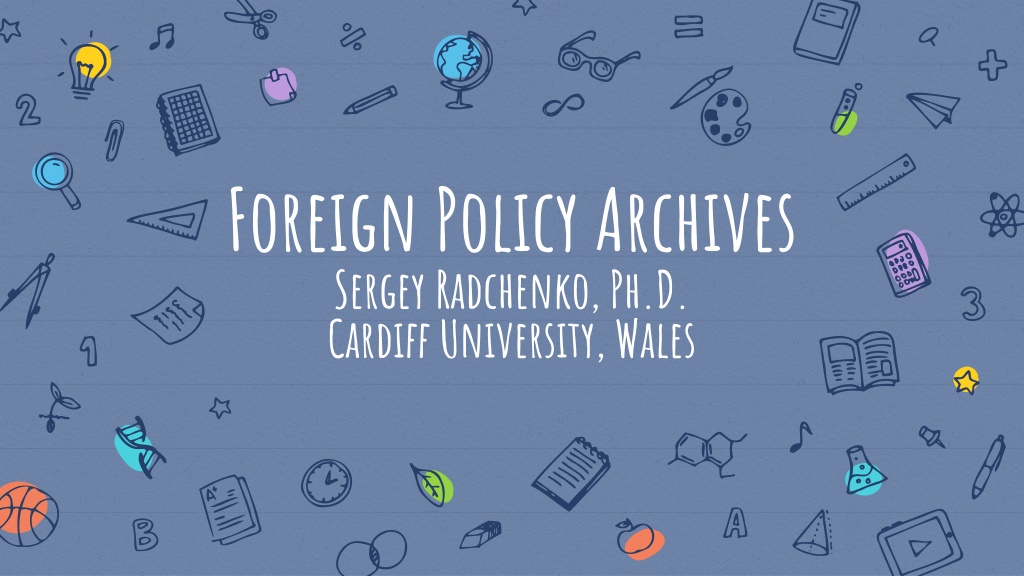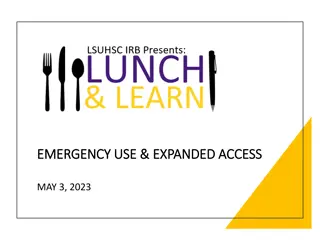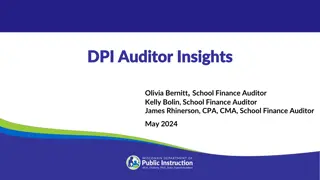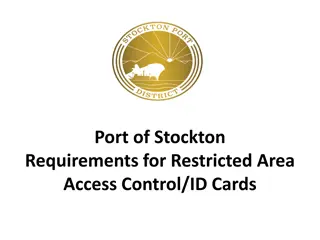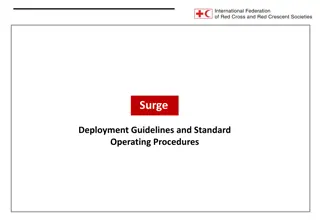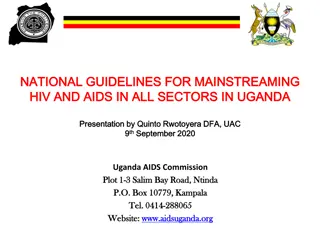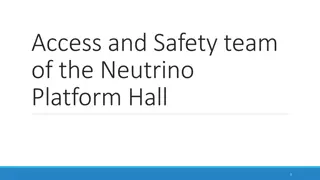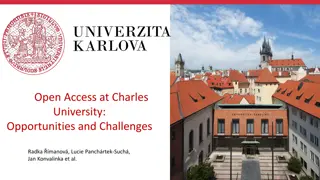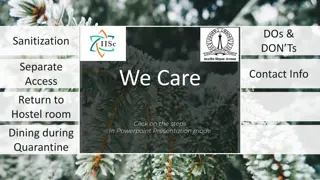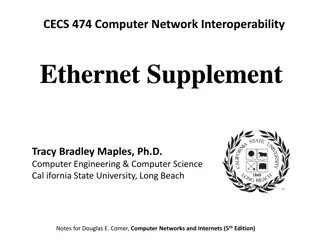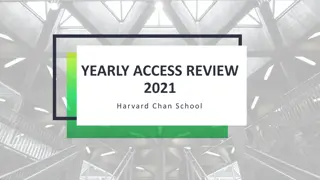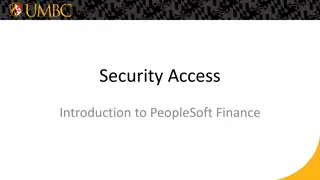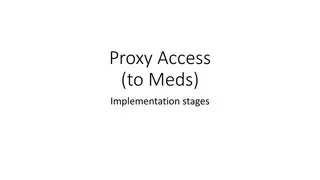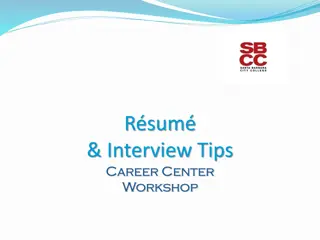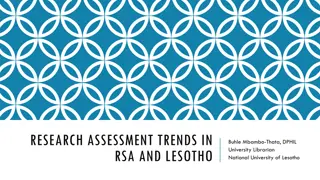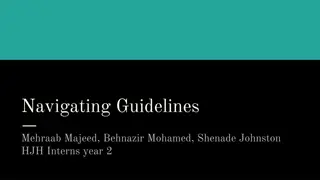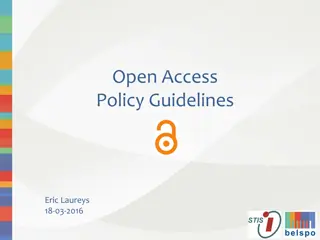Research Access at AVPRF - Tips and Guidelines
Discover essential tips and guidelines for accessing research materials at AVPRF (Arkhiv Vneshnei Politiki Rossii), including how to write a letter for access, understanding rules of research, and the key takeaways for researchers. Navigate the complexities of Russian archives effectively.
Download Presentation

Please find below an Image/Link to download the presentation.
The content on the website is provided AS IS for your information and personal use only. It may not be sold, licensed, or shared on other websites without obtaining consent from the author.If you encounter any issues during the download, it is possible that the publisher has removed the file from their server.
You are allowed to download the files provided on this website for personal or commercial use, subject to the condition that they are used lawfully. All files are the property of their respective owners.
The content on the website is provided AS IS for your information and personal use only. It may not be sold, licensed, or shared on other websites without obtaining consent from the author.
E N D
Presentation Transcript
Foreign Policy Archives Sergey Radchenko, Ph.D. Cardiff University, Wales
Overview Federal archives Agency archives RGASPI (up to 1953) with exceptions TSAMO (Military) RGANI (1953-1980s) with exceptions AVPRF (Foreign Ministry) GARF (Soviet & post-Soviet) SVR archives (Intelligence) Regional archives The key is to spread your activities widely because lack of access in one archive may be compensated by access elsewhere (e.g. cross-references between AVPRF & RGANI or RGANI and the regional archives) 2
Broadly about access Rules of research - Not uniform (different archive = different rules) - Make sure you have the right visa - Be prepared to leave enough time (from a minimum of two weeks at RGANI/RGASPI/GARF to a month or more at AVPRF) 3
AVPRF [ArkhivVneshneiPolitiki RossiikoiFederatsii]
The key place to visit for research on Russian foreign policy *but* - Takes a lot of time - Success is not guaranteed 5
Some general information about AVPRF Located in Moscow, near the Foreign Ministry There s a Wikipedia page about it! (https://ru.wikipedia.org/wiki/ _ _ _ _ ). The key take-away from the page: the name of the director, Zaleeva Anna Nikolaevna 6
How to get in? You ll need to write a letter The letter should be addressed to Anna Nikolaevna Zaleeva. I recommend writing it in Russian. Send your letter to avprf@mid.ru. Then wait. How long? Well, remember that your letter will go to a special MFA department for clearance, and the MFA will consult with the fond-keepers and the FSB. So give it a month before calling. 7
The letter What you put in the letter is very important, as it will govern your rules of access. 8
Before we get to the substance of the letter, lets look at whats AVAILABLE AT AVPRF There s no online finding aid (not for the entire collection anyway) Material is arranged by so called referenturas (desks) For example, there s a Chinese referentura (100). This holds materials: Of the Soviet Embassy in Beijing & various consulates The China desk at the MFA (including records of meetings with Chinese diplomats in Moscow) Materials that were originally classified are in 0100; those that were not (usually rubbish) are in 100. Same pattern repeats for other referenturas, i.e. (0)129 (USA), (0)79 (Vietnam) and so on. There is also a special referentura for the Minister of Foreign Affairs (06) 9
Practice There is an online archive, run by the AVPRF, which hosts material for select referenturas for the 1941-45 period. The website is agk.mid.ru. Check it out to get a sense of what these look like in practice. Also, if your proposed topic is US-USSR relations in 1941-45 (or the Wartime Alliance or anything like this), you can just use the online archive, as if you request regular access, you won t be able to get in. You are now ready to write your letter but before you do, remember: Access differs depending your chosen referentura. Some fond- keepers are nicer than others. Some will feed you rubbish; others will bring the real thing. 10
Letter pros and Cons Breadth Chronology Be specific If you letter is too broad (e.g. Soviet foreign policy, 1917- 1991), you ll be rejected. But if you are too narrow, you ll be face constraints when ordering stuff at AVPRF A sensible chronology is something that doesn t go beyond a couple of decades. Request access to specific referenturas *and* be sure to include the Minister s referentura; you won t automatically get access otherwise. 11
Example letter . . 1- 2021 , , 1945-1965 , , : , , , , , . , . . 12
You may not actually get all your preferred referenturas Start calling after a month to agree on access Once it s ready, you an come (bring your passport). For example, supposedly, they no longer give out the Minister s referentura. Doesn t hurt to ask! You ll want to call the reading room (+7 499 241-51-12), and ask whether your propusk (pass) is ready. To save time, ask the reading room staff to order some documents for your in advance (will save you a week at least) 13
Rules in the reading room Equipment Photocopies Ordering You have to fill out a slip of paper. Be specific: diary of the Soviet Ambassador to Iceland, 1964-65 . They might bring you something else. Keep at it, request it again. Thankfully, you don t have to type everything by hand. You can use your laptop (but not your camera). They are real difficult about people attempting to photograph stuff there, so I would not recommend you try. Learn how to type fast in Russian before heading there! You re out of luck. You can have 15-20 pages photocopied for the entire subject of your research. It s free but it takes weeks (months?) You have to fill out a slip of paper to request photocopies. Do it if there s someone who can pick them up for you or you plan to stay in Moscow for months 14
More rules in the reading room Fond-Keepeers The process Reading room staff These are your key allies. If you have good relations with them (never quarrel please!), they ll accommodate you by arranging for more and better materials to be brought to you. You won t normally meet them but they are crucial to the success of your endeavour. It s a hit and miss. Some fond- keepers are more open, some won t give you anything. The process of working at AVPRF is unlike that at any other archive. Here s an approximate description 15
The process Read your order Why am I given this? Order stuff You fill out little slips to order your materials. Depending on whether they are held in the building or off-site, it may take a week to get them. Use the time to explore other archives or just chill out in Moscow. You ll get maybe 5-10 dela. Read them. Pay attention to the classification (zero or no zero in front of the fond number). If there s no zero, they re feeding you junk. Why? 1) It could be that the materials you want are still classified. Declassification is uneven. Some materials have been declassified through the 1980s, others not yet. Or maybe it s the fond-keeper! Who knows! 16
The process part 2 Repeat It s getting better persevere Spend half a day reading your stuff even if you think it s useless. Return it. Politely ask for what you originally requested. Repeat a few times. Joy! As you build trust with the reading room staff and the fond keeper (based on respect and tea bring your own cookies), you ll get better stuff. Some of it *really* good. Or maybe not. It s just hit and miss. Don t blame the staff. They are underpaid. 17
THANKS! Any questions? You can find me at @DrRadchenko or just e-mail me at RadchenkoS@Cardiff.ac.uk 18
